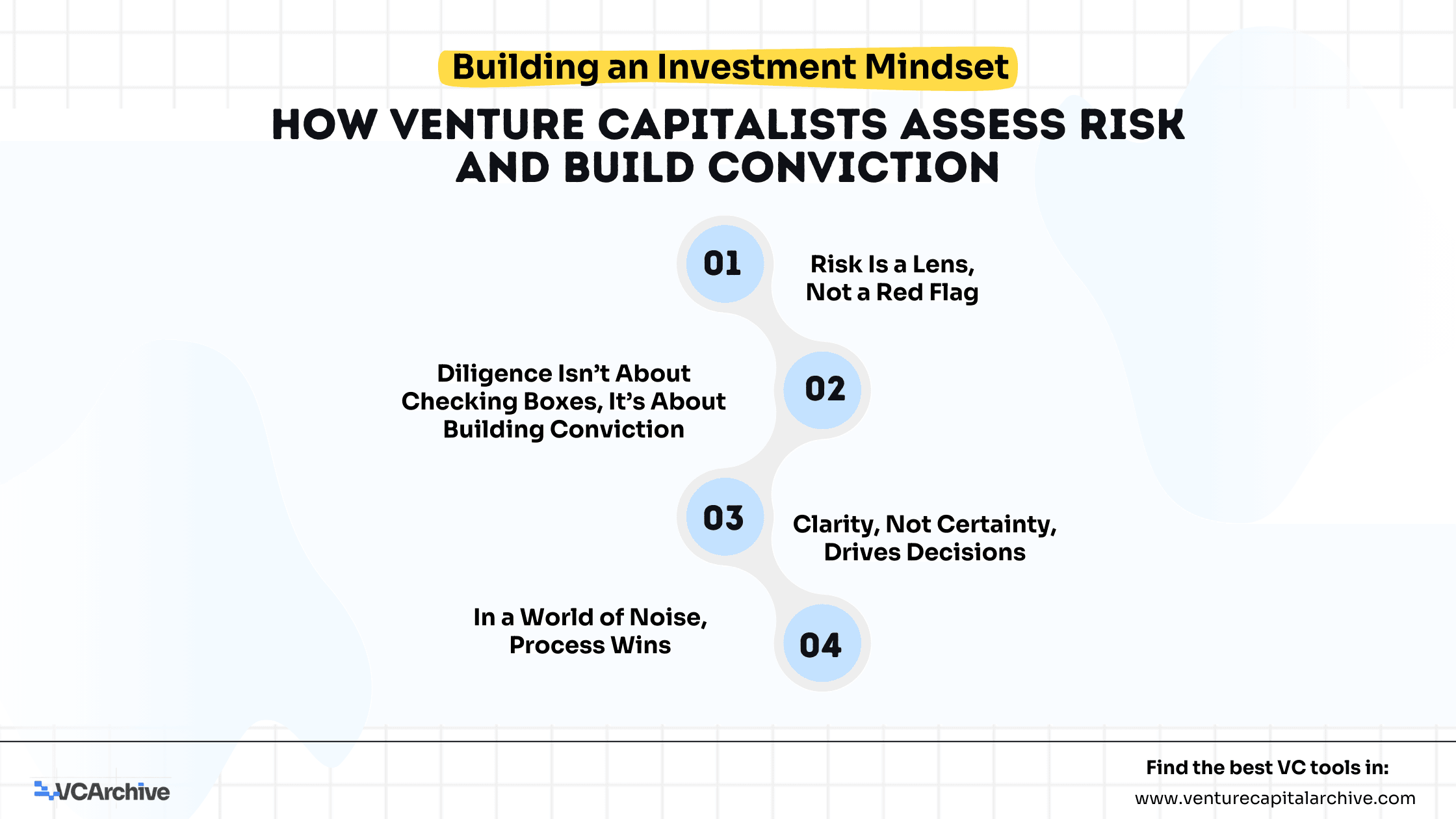
How Venture Capitalists Assess Risk and Build Conviction

Venture capital isn't about finding perfect companies. It's about spotting outliers early, understanding risk in context, and backing teams with the grit to turn ambition into execution. Developing that lens is the foundation of an investment mindset and it’s what separates reactive capital from smart, conviction-led investing.
Risk Is a Lens, Not a Red Flag
In venture, risk isn’t something to fear, it’s something to understand. The best VCs don’t run from risk; they study it, price it, and decide whether it aligns with the potential reward.
Every early-stage company carries risk by default, market size, product complexity, founder inexperience, regulatory hurdles. But in the hands of the right team, those same risks can evolve into differentiators. What matters is knowing which risks are fatal, which are fixable, and which are just part of the game.
Early-stage investors don’t need guarantees. What they need is a clear view of the tradeoffs and the confidence that the upside is worth the volatility.
Diligence Isn’t About Checking Boxes, It’s About Building Conviction
The due diligence process is where assumptions are tested and real insight emerges. Good investors don’t just ask for a pitch deck and cap table. They want to understand the DNA of the founding team, the strength of early user signals, the logic behind go-to-market, and the potential for defensibility as the company scales.
It’s a mindset shift: from evaluating what a startup is today to what it could become tomorrow. The goal isn’t perfection, it’s pattern recognition. That sense that the company is attacking the right market, with the right urgency, and that the founders are the kind of operators who can bend the curve in their favor.
When VCs invest, they’re not just buying into current traction. They’re underwriting belief in future momentum and that belief is earned through thoughtful, focused diligence.
Clarity, Not Certainty, Drives Decisions
In venture capital, certainty is rare. Most of the time, you’re backing a team, a thesis, and a potential, not a balance sheet. But that doesn’t mean investing blindly. It means knowing what you’re betting on, and why.
The best investment decisions aren’t made in spreadsheets, they’re made in moments of clarity. After the process, a great investor can say:
“I understand the risk, I believe in the team, I’ve stress-tested the thesis and this is a risk I’m willing to take.”
That’s what conviction looks like. Not overconfidence. Not consensus. Just sharp thinking backed by a repeatable process.
In a World of Noise, Process Wins
It’s never been easier to be reactive, to chase hot rounds, over-index on FOMO, or follow the momentum of other firms. But venture capital isn’t a game of speed. It’s a game of discipline, insight, and edge.
Great investors don’t scale by saying yes more often, they scale by saying yes for the right reasons. They build filters, not funnels. They refine the way they think, the way they decide, and the way they follow up post-investment.
Because in VC, the winners don’t just see the future early.
They think differently, act deliberately, and back with conviction when it matters most.